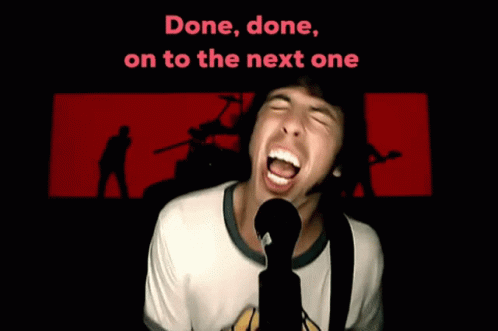During one of my recent mentoring sessions, an interesting discussion started with my mentee. How do you manage being a leader with being hands-on too?
If you have some experience in leading a group I suspect you faced the same issue at some point, maybe not with coding but for sure around the “I can’t be one of the hands-on people anymore”. I don’t think this is necessarily true, but being hands-on and a great leader is a tough challenge and its practicality is heavily influenced by the environment around it.
During our session the main issue were interruptions and meetings driving away time from focused work.

I there a way out of this? I don’t know, but in my experience you can help yourself. The goal in this situation is to create space for deep work, chunks of time in which you expect no interruptions and no meetings. In which you can focus and do deep work.
There are calendar blocking techniques that can be tried out, but that’s like curing the symptoms and not the causes: if everybody needs you, you will never be able to get that focus time, because there will always be something requiring you attention.
We can now agree that improving on this situation is hard, requires dedication and a lot of learning. Especially if you are moving from an individual contributor role to a team leading role, as you need to adjust your thinking and approach; you are now the one everybody else count on.
My suggestion here would be: remove yourself from the critical path. Stop being the one everybody needs to go to.
What’s the critical path?
Doing something, in a generic way, involves going from a Point A to a Point B. To move from A to B a series of steps are required. The critical path is that path from A to B that you cannot avoid taking; is composed of those steps that are mandatory to move from A to B.
Let’s visualise this with some example. Let’s say we are travelling from City A to City B. It doesn’t matter which transport are we using, we will need to go through some physical places. And we hope there will be no accident, delay or impediment along our route, because that would slow us down. Or maybe we are taking a taxi, we hope there will be no slow downs as that will make the run more costly. Or maybe you need to study for an exam, so you will want to avoid getting sick, as that would reduce the time you have available for studying, making you risk to fail the exam.
The critical path is the series of steps that needs to be performed to achieve an objective. Any impediment in the critical path will make achieving the objective be more time consuming, more costly and/or not be ready for the deadline.
We can say that this critical path is the most important element you want to watch.
Am I in the critical path?
This is a worthy question! How do you identify if you are in the critical path?

Does any of this happen to you:
- other come to you for answers that they need to do their work
- only you have the knowledge needed by others
- you get interrupted frequently (by your reports, your peers or your manager)
- you need to take decisions and people depends on them, so they are blocked waiting for your decision
If yes you are in the critical path. And now what?
There are some strategies you may try to move away from it. Those strategies require time and trust as their main ingredients, as removing yourself from the critical path is all about delegation. You need to learn how to delegate (a skill that you generally don’t need as individual contributor), and the more effective you will be at it, the more effective your work as a manager.
The hard part of delegation is that is not about doing something, is about not doing something. But that something has to happen anyway. Delegation is hard. Delegation involves trust. Trust is even harder.
So how do you build trust? Here are some techniques. In the next examples I’ll be using teacher and student as “the one that knows how to perform a task right now” and “the one that should learn how to perform a task in the future”.
Shadowing
Is there a task you do that someone else could do with some training? How do you deliver that training? Shadowing may be a solution. The student follows (or “shadows”) the teacher while they perform the task. The goal is for the student to be independent in executing the task after a set period.
Other literature is available, but I want to give some hints:
- define a deadline after which the shadowing period ends
- apply to task that may benefit from observation (es interviewing, meetings) but do not apply to heavy concept base tasks where a lot of prior knowledge is required
Pairing
Do you have a knowledge-heavy task at hand that you would like to delegate but don’t know how as it requires a lot of prior knowledge? In this case shadowing is probably not enough. Do pairing sessions, as in “code pairing” sessions, but for other topics.
During those sessions select a driver and a writer. The driver direct how to do things, the writer executes. Exchange roles after some time. This is a great way to get to know the other person and build trust, while sharing knowledge.
Proposal documents
Do you have a task that needs some thinking, where multiple solutions needs to be explored and there is no clear solution? Delegate writing a proposal document and review it together. Going through a document has many benefits: it allows asynchronous communications, will last for future people (“verba volant, scripta manent” Latins used to say) and will provide for time and space to have an insightful conversation.
Do remember to appoint a driver for the document, who will be in charge of moving from draft to the final decision. The driver does not have to be the one taking the decision too, on this subject there is a whole lot of literature, so go surfing!
Pitfalls
Delegation does not come without its risks. Watch out for things that you don’t want to happen, some of which I summarise below.

Not all tasks are the right candidate for delegation
That task the CEO is really looking for and keeps you accountable for? Probably that’s not the best task to delegate.
Not all tasks can be delegated, but fortunately not all tasks have the same importance (as impact * complexity * urgency). Knowing which task to delegate is one of the hidden skills of great leaders. I think that for being great at it you need to remember that half of it is your judgement but the other half is the environment around you.
Some tasks that may be good candidates are: any decision that can be reverted (from less expensive to most expensive to revert), any task outside of the critical path, any “nice to have”.
Another judgement method you can apply here is what you are aiming for: are you aiming for more personal focus time? Are you aiming to making sure the critical path does not have any impediment? Are you trying to upskill someone? Keep in mind your goal when delegating, as it affects your decisions.
One framework to help here is the Eisenhower Matrix.
Don’t setup people for failure
If you remove yourself from critical paths but is not safe to do so or is not appropriate given your team health and competence, you are setting up people for failure.
Failure brings pressure and frustration. Frustration leads to fear or anger. And we know how this ends, fear leads to the dark side.
Over time people will get disengaged, they may even get mentally or physically sick due to the excessive burden and in the end leave the group (or company). Don’t be that leader.
Be okay with people failing!
Have you ever done something for the first time? Like riding a bike, singing, studying a subject? Where you good at it? I bet not that much.
When someone else will start doing something, in particular something you are used to do frequently, they will probably not be good at it. They are building their way of doing it, and the only way for this to happen and to make them grow is to allow them to fail in a safe space. Your goal is to build the safe space, not to prevent them from failing.
Be okay with having hard talks
People you delegate to will not do everything right. As you will be responsible for the outcome, you need to learn to have hard conversations.
You need to learn how to talk about issues, missteps and errors. My advise is to learn how to be emphatetic, respectful and transparent. We tend to associate negative feedback with something bad, but learning how to give negative feedback in a human and constructive way is a golden skill, it build trust.
If you think this is hard, consider the alternative: everything will be great until it won’t be anymore, the number of wrong things will probably be too much and you will have way worst conversations to have.
Stop thinking about the effort, start thinking about the outcome
When people in your team feel safe and empowered they will do awesome things together. A team is more than the sum of its components. Your team will be more resilient, more effective. You will be more resilient and more effective.

Whew, this was a long one! This advice does not applies to managers/team-lead only, I found it useful in other roles too. As always, the goal is not to be perfect but to understand how to improve and acquire some new tools for your tool belt.
As leaders, leading other people is a challenge but will give back many rewards if you’re committed to improve and clearly show that you care for people.